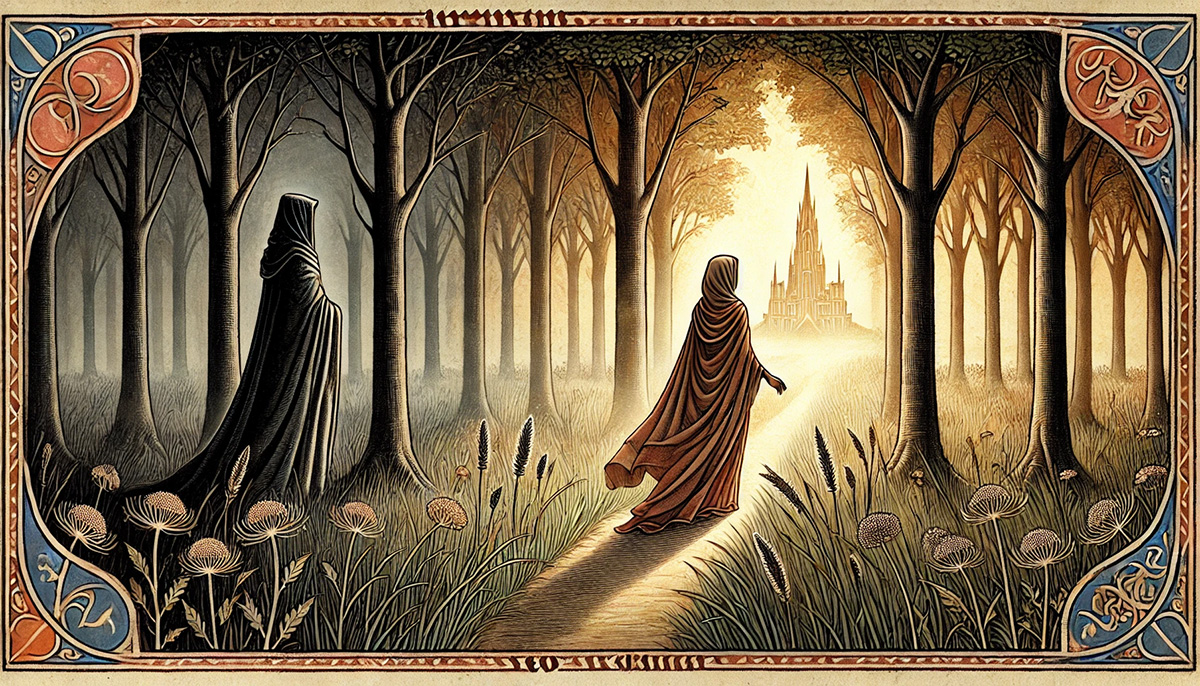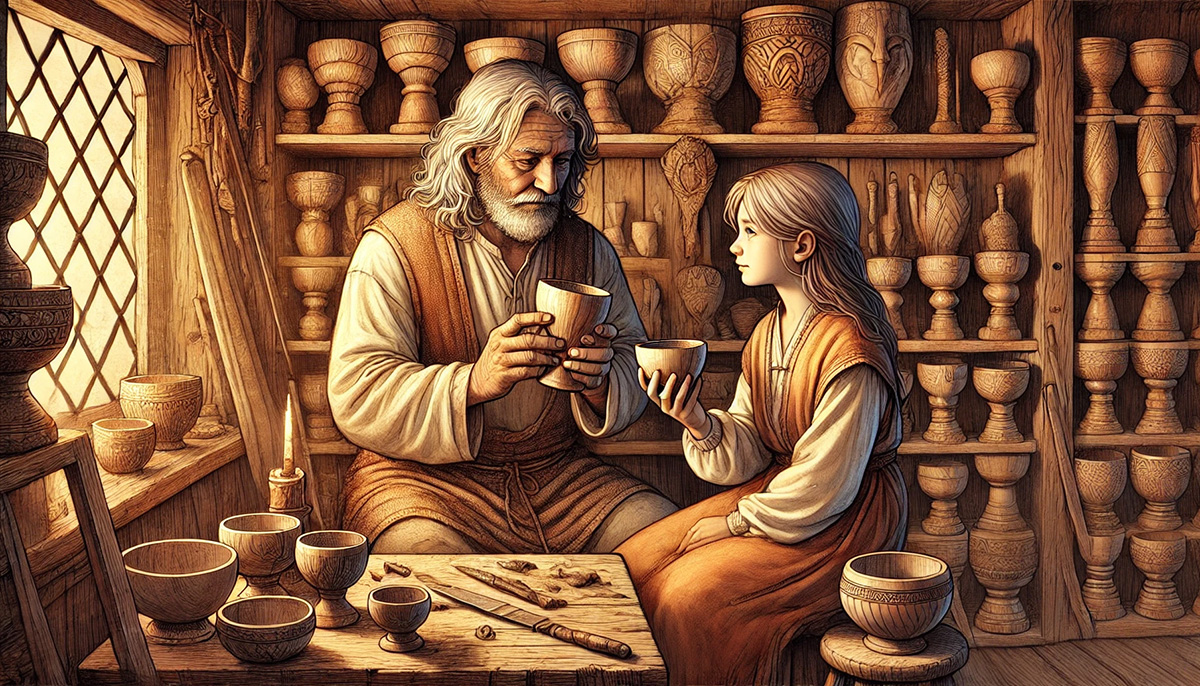It seems to me that humans occupy two worlds at the same time. One is the external physical world, the other is our inner psychic world — the world of our inner consciousness.
As we explore the physical world, we encounter other beings who seem to have an inner world like ours: fellow humans, and animals, such as pets, who seem to have their own inner consciousness all too similar to ours. (Hence their charm).
Both worlds — the outer and inner — are infinite for all practical purposes, in the sense that we are incapable of plumbing their extent and depth. In the case of the physical world, our observable universe encompasses everything that can, in principle, be observed by us at this moment in time, given the finite speed of light and the age of the universe. Since the universe is about 13.8 billion years old, we can only see objects whose light has had time to reach us in that timeframe. This creates a “sphere” of visibility centered around us, with a radius of about 46.5 billion light-years. (93 billion light-years in diameter.) Which seems odd since 13.8 billion years suggests a smaller sphere. However, due to the expansion of space itself, the most distant objects we can see are now much farther away than a 13.8-billion-year light journey would suggest. This means that the observable universe is approximately 421,000,000,000,000,000,000,000,000,000,000 cubic light years in volume. And that’s just what we can possibly observe. Everything beyond that is unknown and unknowable.
Ancient maps of the world had the phrase “Terra Incognita” (“the unknown world”) marking those regions where no explorer had gone. Today, those unknowably vast regions of the cosmos beyond the observable sphere must be the “Cosmos Incognitus” — the Unknown Cosmos.

Meanwhile, imagine a sphere that encompasses just the infinitesimally small corner of the Cosmos that is our solar system. We could say that its radius is the ‘heliopause’ — where the sun’s solar wind peters out and one is truly in the vacuum of space. Now imagine that the ‘sphere of our solar system’ is a drop of water. And that our observable universe is an ‘ocean’, with our solar system as just one drop in it. How big is that ocean, you ask? Well, it’s a mere 679,000,000,000,000,000,000,000,000,000,000,000,000,000 times larger than all Earth’s oceans combined. That cosmic ocean is so vast I can’t begin to wrap my mind around it. And that’s only counting the observable universe. After all, there is no way of knowing anything about the vast unknowable oceans of “Cosmos Incognitus” beyond that!
Concerning my inner psychic world, meditation practice, psychotherapy, or maybe even a good mushroom trip will reveal layer upon layer of unconscious processes below the level of my conscious mind. In the same way that there is no practical limit to external space’, there doesn’t seem to be any limit to ‘inner space’. There’s no way of estimating the ‘volume’ my ‘conscious mind’ occupies in the vastness of my conscious + unconscious psyche.
Our physical world is governed by the laws of physics. Many great minds down through the ages have expressed these with mathematics. But it’s also true that every one of us has learned enough about ‘Newtonian mechanics’ to be able to walk upright and play ‘catch’ with our friends, and countless other physical activities. We do that by training neural networks of our nervous systems by play and by trial and error, especially as little children. Consider the mastery of Newtonian and body mechanics displayed by an Olympic gymnast — all without the benefit of any mathematics.
And yet, for all practical day-to-day purposes, the everyday physical world seems essentially deterministic, whether you describe that with mathematics or with trained human neural networks.
So, if we let ‘math’ be a proxy for how we understand our outer physical world (whether that be represented by math or some bio-neural-network), how do we make sense of our inner world?
I’d say — Stories.
And not just any stories. In the same way one can write random valid but irrelevant equations, one can also write random coherent but unhelpful stories. (TV is full of those, ha ha!)
”Myth” is a word with two diametrically opposed meanings: something that is false: “that’s a myth!”. Versus a story that tells us something eternally true about the human experience is also a ‘myth’. A simple example of something ‘eternally true about the human experience’ might be the Greek story of Sisyphus, who was condemned by the gods to roll a boulder to the top of a hill, except as soon as he almost reached the top it would forever get away from him, roll to the bottom, and he’d have to start all over again. We’ve all been there.
So I’m going to use the word ‘Mythos’ to name those stories that are deeply meaningful to our inner life. Or “mythic stories’, whichever seems to better fit the given context.
We all have stories that we tell ourselves who we are. These stories begin with the stories we were told as children. Cinderella, the Three Little Pigs — countless stories for little children teaching them the basics of how to navigate modern society (e.g. perseverance, planning). Which is not a bad thing — it’s part of what makes the Western world function. They are archetypal, mythic stories that train our young Western minds. And other cultures have their own stories, of course.
James Hillman (1926–2011), an eminent 20th-century ‘depth psychologist’, argued that perhaps the main task of psychotherapy was to help a patient replace a dysfunctional story about themselves with one that is empowering. You can’t change the facts of a person’s history — some deeply traumatic event, for example. But if the client can change their story from something like ‘I’m an eternal victim” to something more like “I’m past that trauma and can confidently move forward” — this change of story can make the difference between a lifetime of living as “I’m a victim” to one of “I can have a life,” accomplishing inner peace and growth. The core inner stories we tell ourselves about who we are are incredibly powerful.
We’re immersed in mythic stories, whether we realize it or not. Science itself has its own mythic stories: “Every day in every day, the inexorable advance of Science improves the human condition.” That’s one mythic story — certainly the prevailing one. But there are others, such as ‘Frankenstein’, where Science creates a monster that destroys its creator. Of course, we all want to believe the prevailing optimistic Mythos of Science. But it remains to be seen if Science doesn’t end up creating the undoing of the human race, whether by creating an AI that has no use for humans, or some monumental ‘oops’ in some bio-warfare lab. The jury is still out. It could well turn out that Science is the worst thing humans created — if it ends up wiping us all out! It’s too soon to tell!
And Society in general is immersed in mythic stories with which we tell ourselves who we are collectively. Every ideology is a ‘story’ in this sense. “Capitalism” is a story. “Democracy” is a story. When the Declaration of Independence says that “All people are created equal”, that’s a story. A powerful one. These are all narratives that have no existence in the ‘physical world’, only in our individual and collective psyches.
And as such, I’d argue that our individual and collective mythic stories are far more powerful, in terms of their impact on humanity, than Science can ever be. Because it’s on the basis of these mythic stories that we apply scientific knowledge. Whether we use Science to create life-saving therapies, or Zyclon-B (the gas used in the Nazi concentration camps) depends on the stories we tell ourselves. The Nazi’s had their own dark mythic story.
So, it’s certainly possible for us to have stories about ourselves that empower us. And we can have ‘pathological’ stories about ourselves that cripple our ability to thrive — individually or collectively.
And there’s nothing to say that a given story will be helpful for all time. The world changes. A story that was helpful yesterday may not be helpful today. ”Communism” was also a story, and it took many decades for it to reveal itself as a pathological one — it seemed plausible enough at the time, but it turned out to be a story that just didn’t work. Sometimes stories take time to reveal their pathology.
Earlier I pointed out that if the entire solar system were a droplet of water, the ‘ocean’ of the observable universe would be about 9,350,000,000,000,000,000 times larger than all of Earth’s oceans combined. I think much the same is true of the stories we tell ourselves: if a drop of water represents the stories we tell ourselves today, the ocean of possible stories — humane, positive, and beneficial stories we could tell ourselves instead — is also 9,350,000,000,000,000,000 times larger than all the stories in our current vocabulary.
And the stories we tell ourselves today didn’t float down from heaven on golden tablets. They were articulated by men and women facing the challenges of their own times. And those stories have, for the most part, moved the human race forward wonderfully. But times change. And to address the challenges we face today means that our stories, our Mythos, have to change too. A lot? A little? I don’t know. But the status quo doesn’t look very promising.
I’m not suggesting that coming up with better stories is easy. Revising and updating our current stories to better fit our current world won’t be an easy task. And then there’s the challenge of widespread adoption. But I would suggest that we have to understand that meaningful change from where we are cannot happen without a change in our current Mythos. Our collective Mythos. That if we keep doing what we’ve been doing, and keep telling ourselves the same stories, we’ll keep getting what we’ve been getting. Which has worked for a century or three, but doesn’t seem to be working so well lately.
I’m just suggesting, as we face the issues of our day, that perhaps the crux of the issue is the stories we tell ourselves. I know that in terms of my own personal life, that meaningful change only comes about when I revise the stories I tell myself about myself. I wonder if that isn’t also true of the stories we collectively tell ourselves.
I just wonder if we dismiss the stories we tell ourselves as ‘unimportant’ to our peril.
— William Zeitler
This article originally appeared on SubStack.




